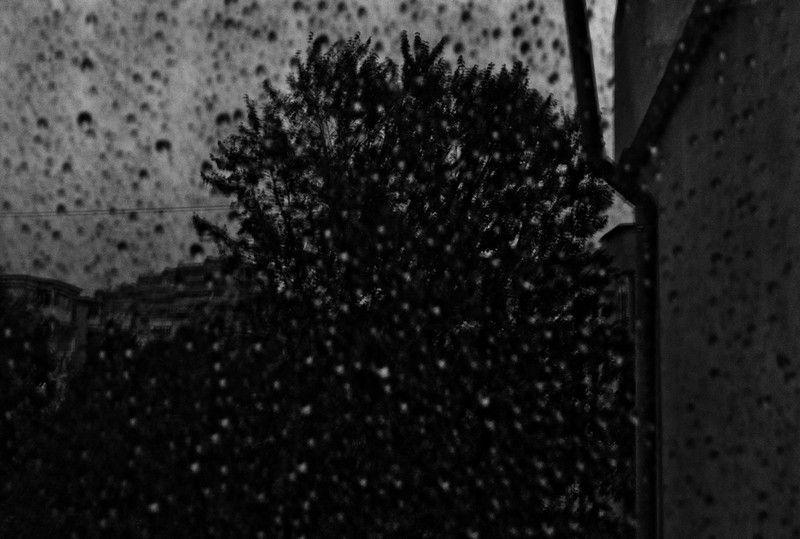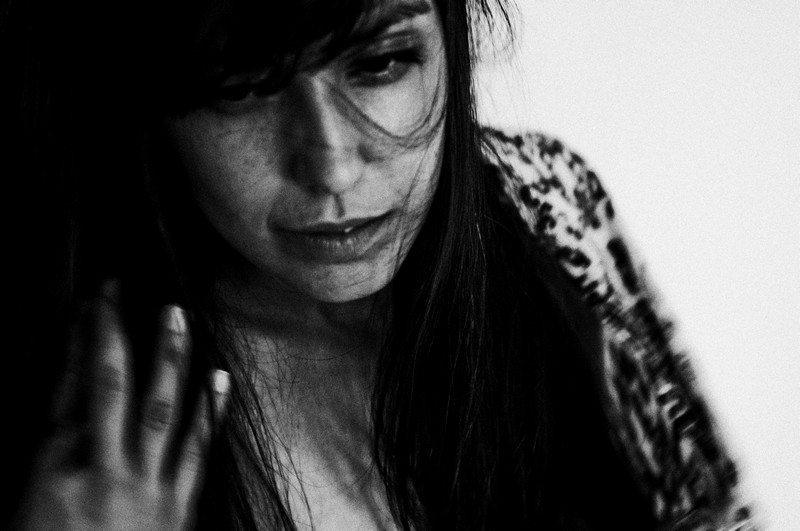

People say the sea is deep —
it's not as deep by half as love.
The sea at least still has its coasts,
love's farthest reaches have no shore.
With harp in hand I'll climb the tower
To empty rooms full of the moon,
And strum the song of missing him.
My heart and harp will break as one.
it's not as deep by half as love.
The sea at least still has its coasts,
love's farthest reaches have no shore.
With harp in hand I'll climb the tower
To empty rooms full of the moon,
And strum the song of missing him.
My heart and harp will break as one.
Li Ye
poet-courtesan (and perhaps Daoist nun),
8th century
poet-courtesan (and perhaps Daoist nun),
8th century

(note: i borrowed the first 4 lines of the translation from Women Writers of Traditional China, while the last 4 are translated by A.Z. Foreman, i liked his version better in this case)

this month at the turning of the year -- when the wind pulls handfuls of leaves from the trees and the cold drives us inside to sit by a window -- invites us to think on the wispiness of the world that had seemed so solid, invites us to longing ... all of this is there in her, in the soft gestures of her hands and the very sensual half-parting of her lips ... even more in these eyes that look at us so frankly and deeply, but then turn to gaze just as deeply into herself, perhaps into the past she carries inside her, as well ... very beautiful and well matched with the poem :-)
ReplyDelete.
i had known this poem for maybe 2 or 3 years, and i always came back to it somehow, and there lingered a wish to see it on the Bridge, but each time i didn't feel i was fully within it, so i postponed... but this november had something... so here it is! :-)
Deletesuch beauties, the poem and the woman. perfect for mid november!
ReplyDeletethank you gentle one
Deletei find november is a true month - nature stripped of colors and adornments.
ReplyDeletethus maybe is the month to fall in love, when one sees the world honest. i smile.
that is very interesting, a true month - yes, a time of facing one's own bareness, and see what is left and what can still be...
DeleteMy favourite poet, model and photographer combined...oh to be a hilltop pine.
ReplyDeleteyes!!!
DeleteLi Ye, my favorite Daoist nun. One could fashionably argue that one's knowledge, however sketchy, of a sole member of the poet-courtesan class disqualifies one from using the epithet favorite. Yet love's unfathomable pangs, also immune from pesky disqualifications on the grounds of vitreous logic, are similar, in a subtly metaphoric way, to entrusting to a hatcheck girl (rhinestone gloves glinting in the semi-darkness, Aphrodite's peerless smile on her glossy lips) the likes of a tweedy coat.
ReplyDeleteAnd in a bid to pad the comments section with more frivolous content, allow me to offer more advice from George Orwell, enunciated well before 1948, probably while still in the throes of an immodest infancy--don't try to sing and chew gum at the same time (though Greg Lake performed this minor miracle while headlining at the California Jam in 1974).
how long do you actually need to write a comment like this one? or are you like Mozart, writing like this all the time, barely allowing your feather to keep up with the swirl of your incantations? :-)
Delete*don't try to deliver a seminar paper and chew gum at the same time - and i who was thinking i had invented this one!!!
:-)
The last line is exquisite...as if to say: at least in our 'brokenness' we will be together. Is what the rabbi said true: no heart is as whole as a broken heart?
ReplyDelete'Do you forgive me these November days...fires fragment'.
yes, the last two lines, and of course especially the last one, are the reason for which i got so drawn to this poem.
Deleteand yes (a second one):
the line you are quoting (i know it from the BS, from very long ago) is another exquisite one.
I love you....
ReplyDeletewhy myth, that was unexpected!!! but i hope you know it is not me in the photos :-)
Deleteintr-adevar,radiografia perfecta a uneia dintre zilele de noiembrie,cu inaltarea spre un turn in care sa nu se auda decat cantecul harpei, si invalmasirea gesturilor spre chemarea care nu are tarmuri - este minunata :) si ochii ei mari,rotunzi,care tin in ei dorul intr-un fel in care mi-am imaginat intotdeauna ca o face iubita lui Blaga, ea, o stii:
ReplyDelete"Frumoaso,
ţi-s ochii-aşa de negri încât seara
când stau culcat cu capu-n poala ta
îmi pare
că ochii tăi, adânci, sunt izvorul
din care tainic curge noaptea peste văi
şi peste munţi şi peste seşuri
acoperind pământul
c-o mare de-ntuneric.
Aşa-s de negri ochii tăi,
lumina mea. "
ştiu poezia asta de mică, mi-o spunea mama, îi plăcea foarte mult... şi mie, cred că printr-a 8-a, 9-a, atinsesem punctul maxim al îndrăgostirii de Blaga :-)
Deletemă bucu că îţi place atât de mult, draga...
You are beautiful....
ReplyDeletethe girl in the photos is :-)
Deletebut maybe every woman is beautiful when she strums the song of missing her lover...
"And strum the song of missing him." I know that song. I love the frankness of the first portrait.
ReplyDeleteit sometimes blows me away to think that it is, after all, the same song, though played each time differently, since the darkness of times...
Delete